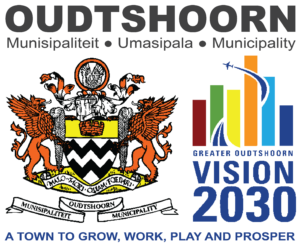Oudtshoorn, 30 May 2016 – The Oudtshoorn Municipal budget which was passed last week is according the town’s administrator, Mr. Kam Chetty the first step towards financial recovery and an exercise in what he termed as ‘financial funambulism’.
Presenting the 2016/17 to 2018/19 budget before Council on Thursday, 26 May 2016 Chetty said: “Today marks a significant landmark in which the Council approved the budget in compliance with all the legislative requirements.” He added that Oudtshoorn Municipality in recent years had numerous challenges relating to approval of budget owing to political divisions within Council.
“The 2015/2016 budget was not approved in time warranting the Western Cape Provincial Government intervention in terms of Section 139 of the Constitution of the Republic of South Africa. In addition, the Provincial MEC for Finance had to approve a temporary budget for Oudtshoorn for the 2013/2014 financial year as Council did not approve the budget and revised IDP.”
The good news is that this time the budget was not only approved timeously, but was passed by the Council. The budget endorsement was also accompanied by the unanimous approvals of the revised Integrated Development Planning (IDP) for the 2016/17 financial year, Spatial Development Framework (SDF) and Service Delivery and Budget Implementation Plan (SDBIP).
Chetty added that the following critical issues had to be considered to balance the budget:
- Reduction of the budget deficit; this implies that the Municipality had to steadily increase the Municipal revenue without creating socio-economic shocks.
- Strengthening of the budget’s commitment towards relief for poor people and reducing the income inequalities – in essence of pro-poor budget.
- Create a budget that would encourage investment and growth
Capital Budget
The capital budget is funded mainly by means of grants from National government in the amount of R 42.547 Million. The remainder will be financed from own revenue generated from mainly the additional tariff increase of 2.1% on electricity amounting to R4.0 Million. This is due to the financial crisis the Oudtshoorn Municipality is undergoing.
Total funded capital projects for the 2016/2017 financial year amounts to R 47.359 Million with the main focus being the following:
- Water Infrastructure R 17.76 Million
- Electricity R 11.9 Million
- Sanitation R 5.48 Million
- Refuse Removal R 4.2 Million
- Roads Infrastructure R 4.25 Million
- Sport and recreation facilities R 3 Million
Operating Budget
The operating budget for the 2016/2017 financial year amounts to R 627.948 Million which represents an increase of R 69.5 million or 12.46% over the 2nd revised budget for 2015/2016.
The cost drivers of the increase in the budget can be summarized as follows:
- 6.00% increase in the wage bill in accordance with the multi-year wage agreement
- 7.857% increase in the purchase of electricity from Eskom.
- Inflationary pressure and the general increase in the price of goods and services
- Exchange rate fluctuation especially on specialist goods required in service delivery.
- Operational requirements to ensure service delivery standards are complied with, this is specifically in respect of electricity, roads and water and waste water.
Housing allocation for the construction of houses has significantly decreased from R 50.27 Million in the 2015/2016 financial year to R 31.955 Million in the 2016/2017 financial year, although the amount was removed from the 2015/2016 2nd adjustment budget. The municipality will still continue to expedite the delivery of houses in spite of the reduced housing allocation. Revenue sources remain under strain yet the municipality has no alternative but to increase tariffs for the 2016/2017 financial year above the norm to support the financial recovery and to ensure that service delivery standards are met.
In an attempt to balance service delivery with affordability and financial recovery, the following tariff increases will be implemented as from 1st of July 2016:
- Electricity 9.75 %
- Water 11.6%
- Sewerage 11.6%
- Assessment rates 10.6%
- Refuse removal 11.7%.
Increases in all categories of expenditure have been limited, all general expenditure items have been reduced with 5% and only repairs and maintenance expenditure have been increased slightly from the revised budget in order to meet maintenance and service delivery requirements and to protect the health of assets, thereby preventing current infrastructure from further dilapidation.
Indigent subsidies
Provision is made in the operating budget for the subsidizing of indigent households as follows; a free 6Kl of water, 50 units of electricity, a 100% subsidy for refuse removal and sewerage charges. A rebate on assessment rates will also be given for Indigent households up to a valuation of R70.000. The indigent subsidy package is in line with the national norm and stretches the affordability threshold of the municipality due to the growing number of indigent households. The total amount in respect of free services, inclusive of free services given in Eskom distribution areas, and assessment rates rebates exceed R 32.9 million in the 2016/2017 financial year.
In order to protect the financial sustainability of the municipality, the provision of free services has been reduced to the prescribed national norm and free water will no longer be provided to non-indigent households.

